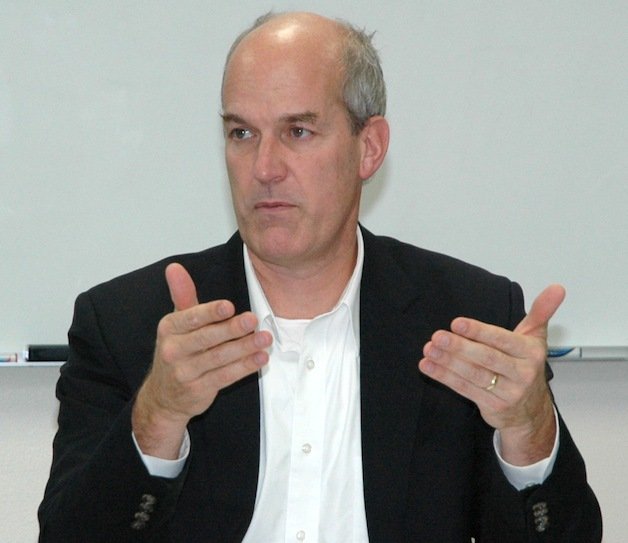EVERETT — U.S. Rep. Rick Larsen addressed veterans at Everett Community College about educational and other benefits Nov. 5, and heard about their troubles with the Department of Veterans Affairs.
Larsen noted that local employment for veterans had made significant strides due to the Bonneville Power Administration and the Puget Sound Naval Shipyard.
“The BPA hadn’t been following veterans’ preference hiring rules, so its administrator was fired,” Larsen said. “The new administrator promised that problem would be solved.”
By contrast, of the roughly 1,800 employees that the shipyard hired last year, more than 500 were veterans, and more than 100 were disabled. With 700 employees retiring this year, Larsen expects the shipyard to hire around 2,000, for a net gain of 1,300.
Larsen touted the value of the Department of Housing and Urban Development’s Veterans Affairs Supportive Housing, or HUD-VASH, in alleviating homelessness among veterans, and likewise pointed to WorkSource of Snohomish County and EvCC’s job fairs as valuable resources for veterans.
Due to the TriWest Healthcare Alliance’s recent contract modifications with the VA, Ray Miller worried that TriWest could now dictate which doctors he could see.
David Brown expressed frustrations with the VA’s bureaucracy. He’d filed a claim March 31, after the VA told him they’d lost his two previous claims, but he was then told that it would take until May 8, 2016, for his claim to be processed.
“They told me they were still gathering evidence, so I asked them what more they needed, and they said they didn’t need any,” Brown said. “I asked for the contact information for the person who was handling my claim and was told they couldn’t give it to me. I spoke with one lady on the phone and told her that I’d be meeting with my representative today, and she said, ‘Go ahead, it probably won’t do you any good.'”
“Let’s see if we can’t prove her wrong,” Larsen said, as he invited all the veterans to get in touch with his staff about their issues.
Others with grievances were two reservists who were not allowed to reschedule VA appointments that had been scheduled to coincide with their overseas deployments, and the widow of a veteran who was told by the VA that they would not pay for her terminally ill husband’s treatment unless he was moved, even as the hospital he was at told her that he couldn’t survive being moved.
Miller noted that 18-24 months tends to be the typical amount of time before the VA will make a decision, and added that this is actually shorter than the 36 months that it used to take.
“That backlog has been the bane of both Bush and Obama’s administrations, and everyone who’s served under them,” Larsen said. “We owe it to you as veterans to try and live up to the examples that you set with your service.”


